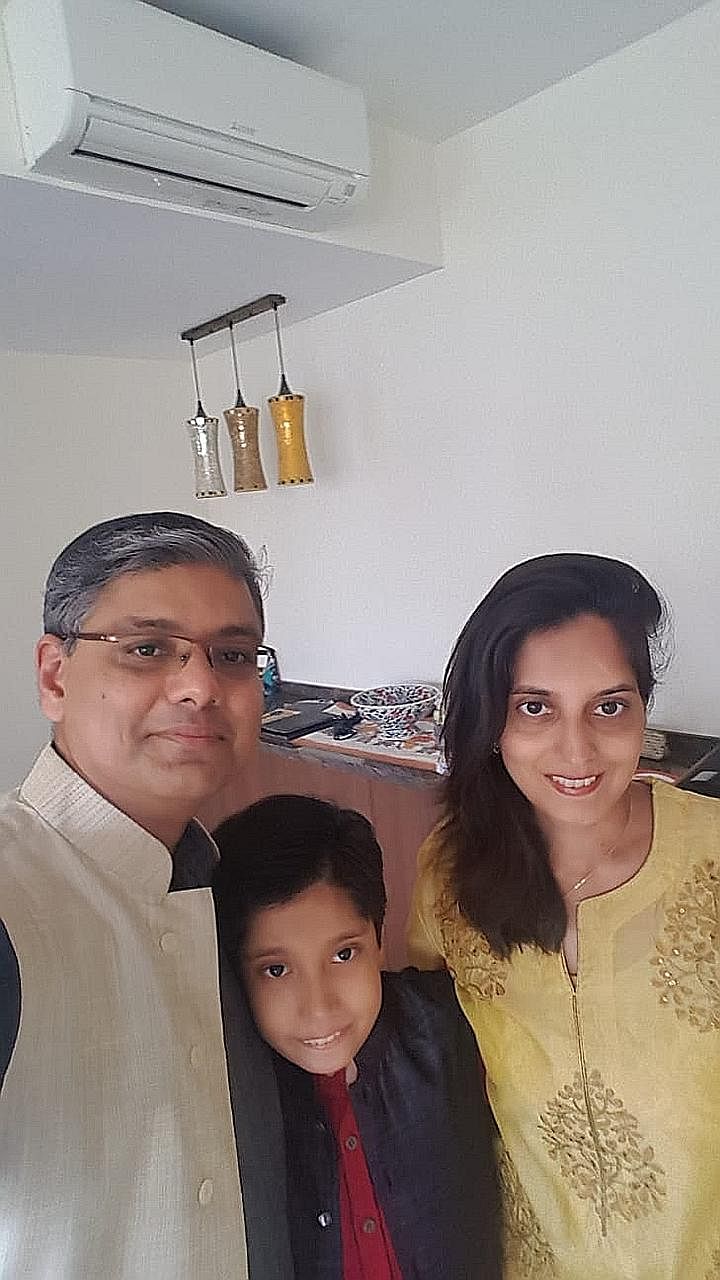Gujarati families' unique surnames: Meet the Singaporewallas
Sign up now: Get ST's newsletters delivered to your inbox
It is not unusual for him to be stopped at Singapore immigration, as officers ask about his surname.
For Dr Reyaz M. Singaporewalla and his family who share the same surname, it is a matter of pride.
They moved to Singapore 18 years ago. But the route was first taken by his great-grandfather Nazarally Tyebally, who arrived here as a trader in the early part of the 20th century and established a company called N Tyebally. It traded in food grains, yarn and spices.
His grandfather, Mr Fazlehusein, was born in Singapore. However, when World War II broke out, fearing for their safety, the family returned to India. Acquaintances started referring to them as "Singaporewalla" and that soon became their second name.
For Indians, the surname often reveals more information such as one's caste, place of origin or occupation. Among Indian communities, it is the Gujaratis like Dr Reyaz Singaporewalla who have the most instances of unique surnames.
As a child growing up in India, he had a lot of explaining to do. His friends would ask him what he was doing in India if he was "from Singapore", said Dr Singaporewalla.
However, the family did not completely lose touch with Singapore and continued to receive Hari Raya greetings even when they were in Mumbai, especially from former president Yusof Ishak, who had studied with Mr Fazlehusein at Raffles Institution.

Dr Reyaz M. Singaporewalla with his wife Fatima and son Kaamil. His grandfather, Mr Fazlehusein - who was born here - and Singapore's first president, Mr Yusof Ishak, were schoolmates at Raffles Institution.
PHOTO: COURTESY OF REYAZ SINGAPOREWALLA
Life came full circle when job opportunities brought Dr Singaporewalla back to Singapore.
An associate professor at Khoo Teck Puat Hospital, he has become a Singapore citizen and lives here with his wife and son.
His wife Fatima said: "In our community, having family names based on the place you belong to or come from is nothing new. However, what was unique in our case was that my husband and I came to Singapore with Singaporewalla already attached to our names. People outside our community were amazed by this."
Mrs Priti Singapuri (belonging to Singapore) has a similar story.
Her grandfather-in-law, Mr Chhaganlal, arrived in Singapore from Surat, Gujarat, in the 1920s and owned a business near Arab Street.
During the Japanese Occupation, he lost all his money. There was no option but for the family to return to India.
However, his son, Mr Balwantram, who was born in Singapore in 1928, always dreamt of returning to the country of his birth.
In the 1950s, he returned to work for one of the big Gujarati trading houses, but his family continued to live in India, said Mrs Singapuri, who is Mr Balwantram's daughter-in-law. "Whenever he returned to India, the neighbours would say, 'the Singapuri has come'."
Her father-in-law eventually adopted "Singapuri" as the family name and moved his family to Singapore in 1964. They now own an electronics business in High Street.
Mrs Salma Moiz, a third-generation Singaporean Gujarati who is a museum and tour guide, said: "In the old days, there were only a few favoured first names and to avoid confusion and differentiate between them, people were given second names.
"Hence, second names derived from the place of birth, profession, caste, physical characteristics or attributes became distinguishing factors."
Apart from those based on places, there are Gujarati surnames like "Kagda" which means crow, "Wagh" meaning tiger, and "bhai" which is brother or "bhoy", the Parsi version of bhai.
Keeping the old names does help one to connect with one's roots.
Dr Singaporewalla's son, 11-year-old Kaamil Reyaz, sums it up: "My friends and teachers in school often ask me about my family name. As I was born here, I feel very proud to have a family name which is the same as my country. I would never want to change it."
Correction note: This article has been updated to reflect the correct name of the company Nazarally Tyeball established in the early part of the 20th century.


